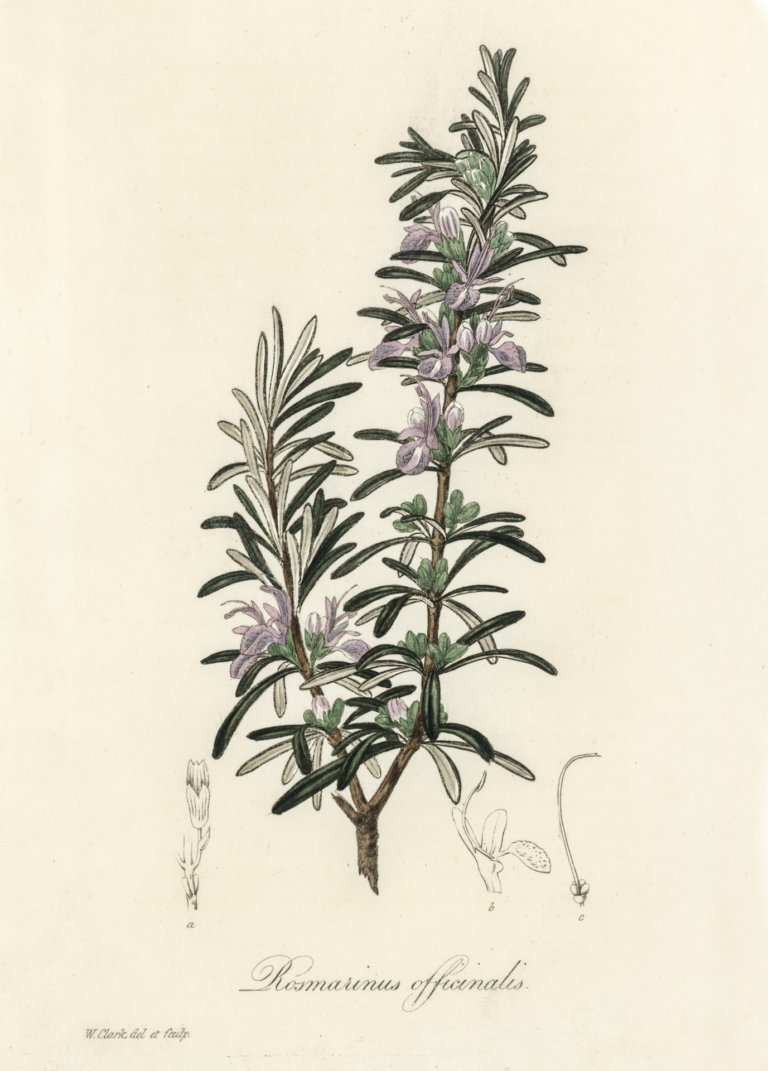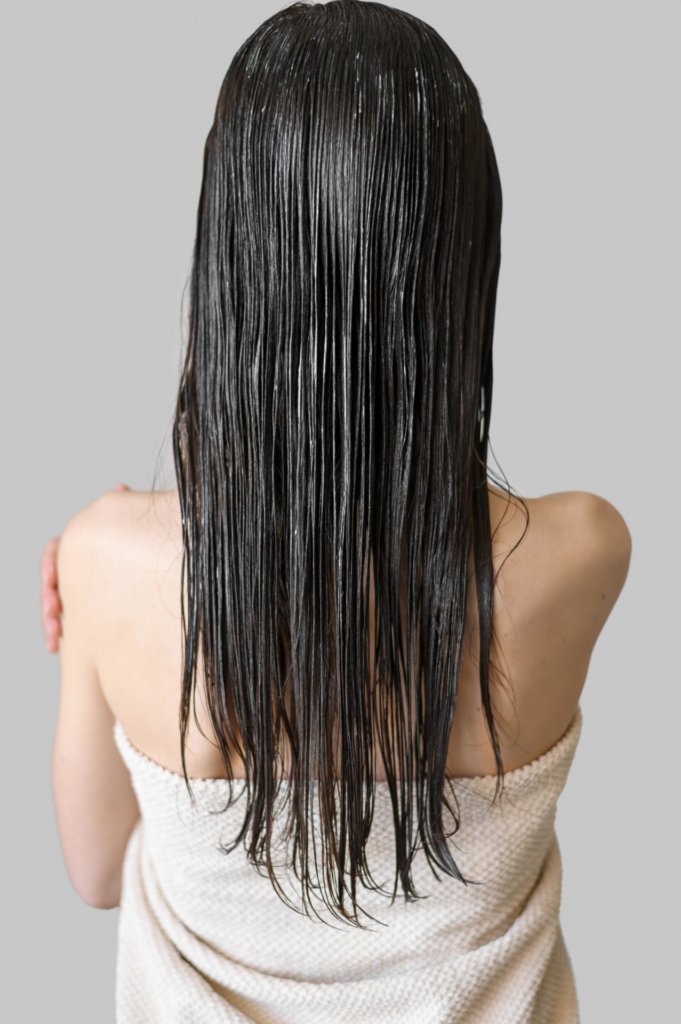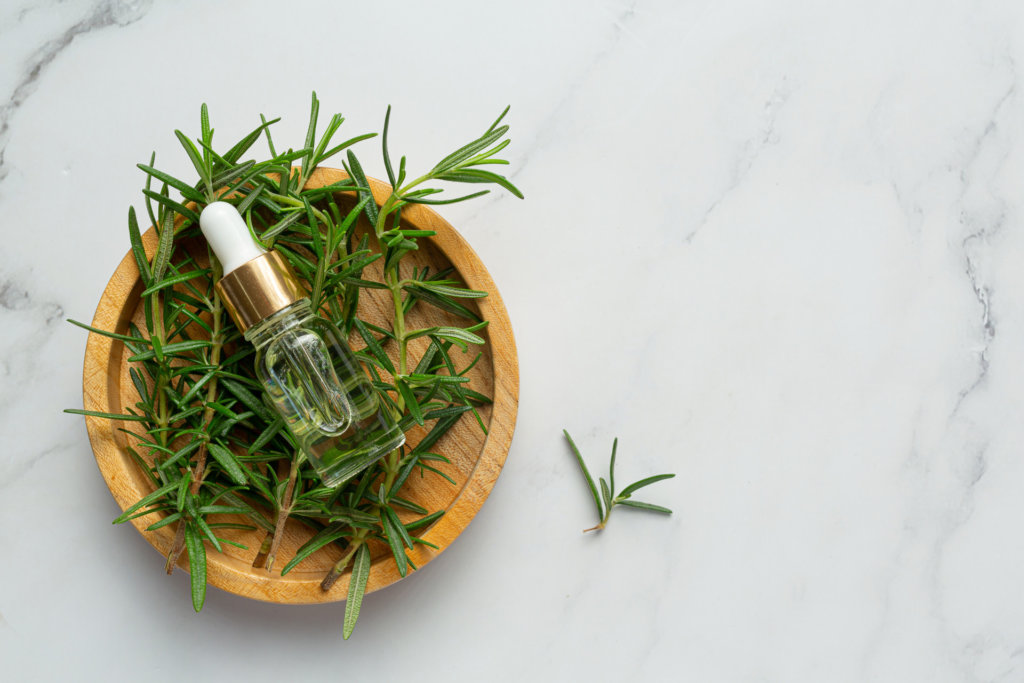1. Mix rosemary oil into shampoo or conditioner
Add no more than 2–3 drops of rosemary oil to 2 full teaspoons of your shampoo at a time, and wash the hair daily. It is important not to over-concentrate the oil into the shampoo, so be careful.
2. Massage directly into the scalp
It is important to dilute it first: to make a rosemary oil solution, you can add 4–5 drops in a teaspoon of carrier oil and then massage into the scalp. Rinsing the oil out afterward is optional.
The study found the effectiveness of applying rosemary oil twice daily for about six months. People who underwent this procedure almost stopped complaining of itchy scalp.
3.Aromatherapy
Add rosemary essential oil to an aromatherapy diffuser, or simply inhale it by opening the bottle. Don’t do it too often to avoid toxic side effects, and remember: a few minutes at a time are enough.
4.Mask against hair loss and dandruff
Rosemary oil shows high effectiveness in the fight against fungi, including those that lead to dandruff. A mask prepared according to this recipe effectively cleanses the scalp of pathogens and soothes irritated skin.
Ingredients:
Base oils: black cumin and amaranth – 2 ml each, avocado – 6 ml;
Essential oils: 2 drops each of lemon and lavender, 3 drops each of sandalwood and rosemary;
Extracts: 1 g each of rosemary and coltsfoot;
Medium chain triglycerides – 10 g
How to prepare and use it?
Mix thoroughly, leave for several hours to infuse. Treat the scalp with the mixture heated to 40°C 1–2 hours before washing.





